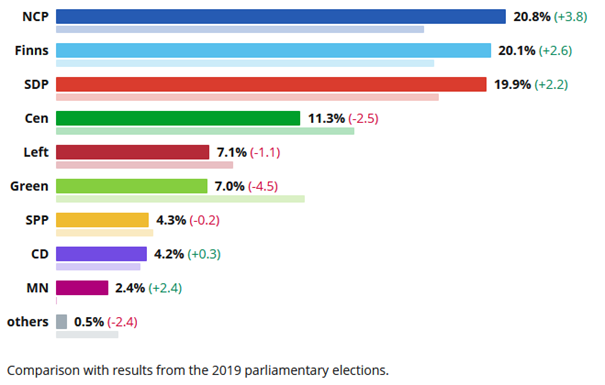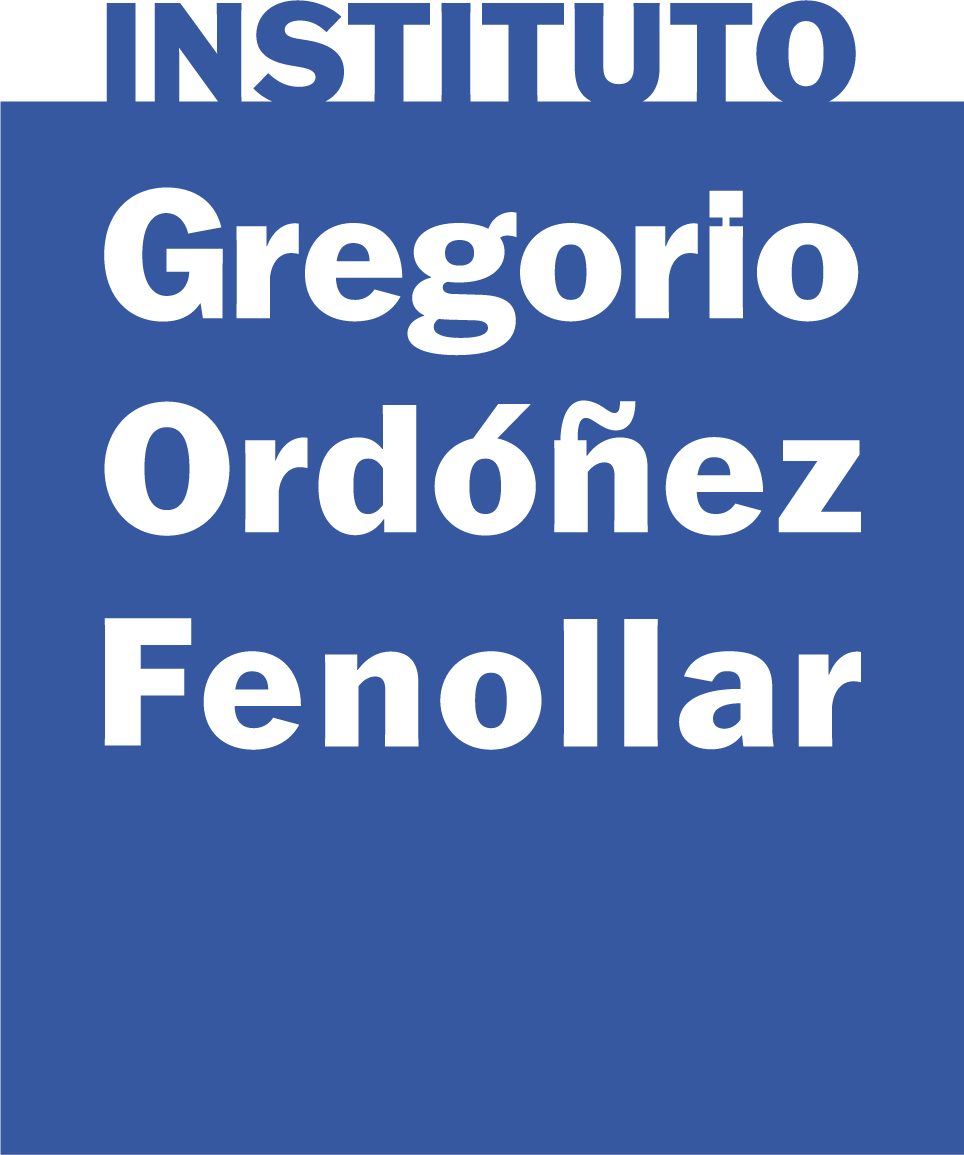Finland´s next prime minister will likely be Petteri Orpo from the National Coalition Party (NCP). The NCP is a member of the European People´s Party and European People´s Party Group in the European Parliament). Orpo´s NCP gained 3,8% in comparison to the 2019 elections and secured 48 seats (+10) of the 200 seats in the Finnish parliament during the national elections held on the 2nd April 2023. The Finns party (formerly True Finns, member of the Identity and Democracy Group) and the Social Democratic Party (SDP, S&D Group) which both gained more than 2% in votes and reached 46 (+7) and 43 (+3) seats respectively, were also among the winners of the election.

Graphic: Election results. Source: Finnish Broadcasting Company YLE (4.4.2023)
The biggest losers of the election were the center-left coalition partners of Sanna Marin´s SDP, which all lost votes. The Green League (Greens – European Free Alliance Group) lost 4,5% (-7 seats), while the Centre Party (Renew Group), founded in 1906 as the Agrarian league, and the Left Alliance (The Left Group) lost eight and five seats respectively. The Swedish People´s Party (SPP, Renew), which largely relies on the Swedish speaking population´s votes, was able to hold on to its nine seats despite losing votes.
In contrast to earlier elections, this year’s campaign was characterized by increased polarization. While the NCP positioned itself with strong economic arguments focusing on a balanced state budget, the populist Finns focused on migration issues. The SDP emphasized upholding the Nordic welfare state, plagued by an aging population, with a positive migration agenda.
What does this election result mean for coalition building? In Finland, a majority government usually requires a minimum of three to four parties to form a coalition. It will now be up to the National Coalition Party to start the negotiations with the other parties. The road to establishing a majority government might be especially tricky, as some parties, including Marin´s SDP, the Left Alliance as well as the Greens, have stated publicly that they will not build a coalition with the Finns Party. Simultaneously, the Centre Party, loosing many of its voters from rural Finland to the Finns party, has announced that it will gather its strength in the opposition.
What could this election result mean for the European Union? Firstly, with the NCP expected to take the Prime Minister´s position, the role of the European People´s Party (EPP) will become more powerful with an increased number of centre-right heads of states in the European Council. Parties affiliated with the EPP will govern nine out of the 27 European Union member states, while Renew and the S&D group hold six and five respectively. Secondly, Petteri Orpo´s NCP will likely push for a tougher economic agenda both in Finland and on the European level. For European governments which advocate for an increased distribution of wealth within Europe, or for an increased amount of common European debt, this election result might be a disappointment.
Janne Leino works as a Programme Manager for the Konrad-Adenauer-Stiftung in Brussels. Previously, he used to work for the Finnish Ministry for Foreign Affairs.

